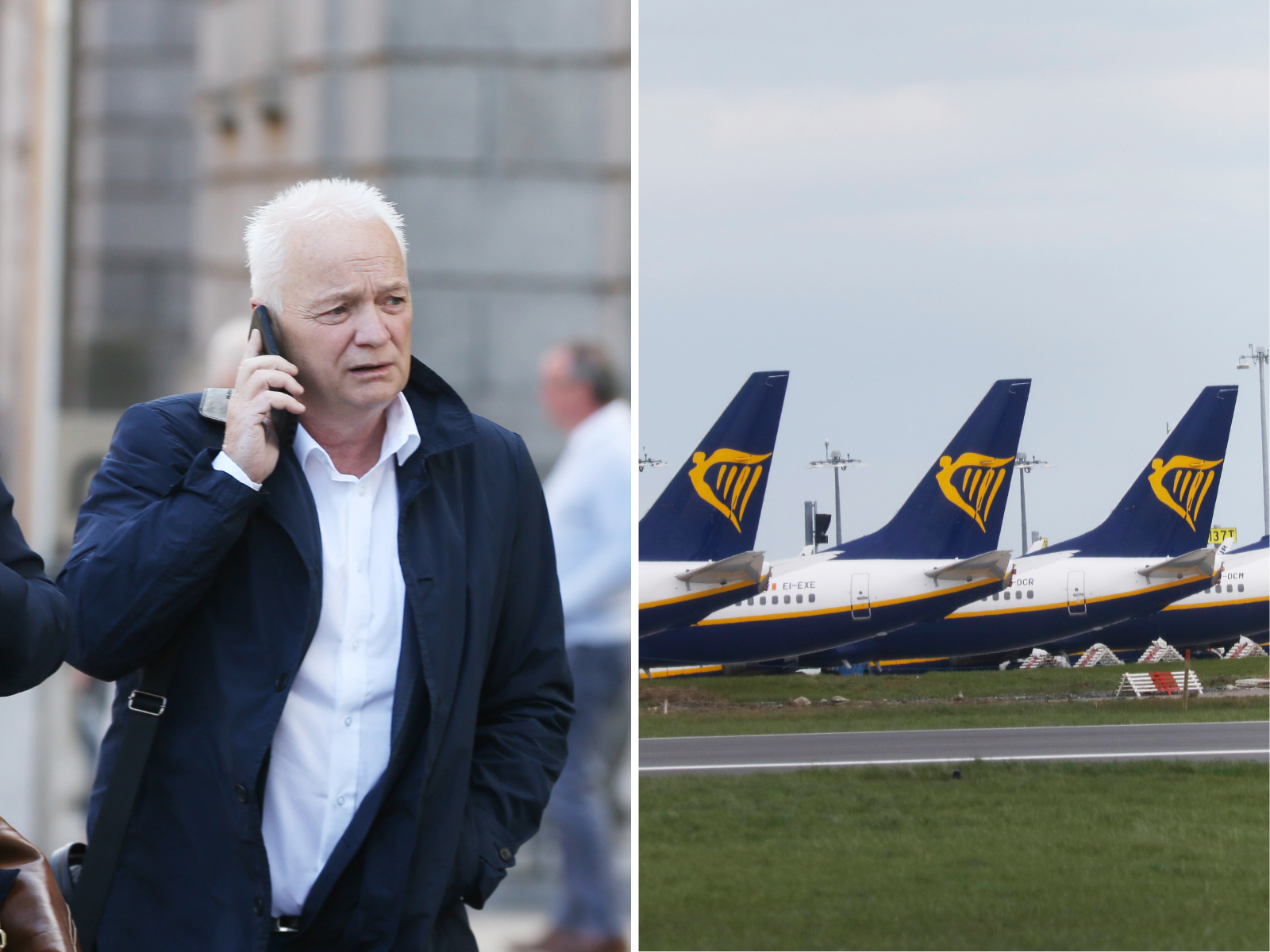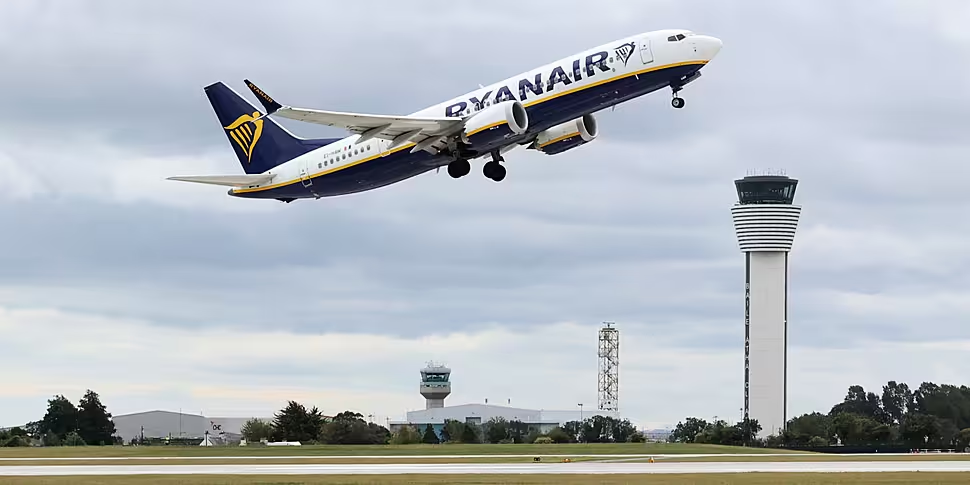Ryanair is to cancel 17 routes at Dublin Airport for its winter schedule.
The carrier said the cuts are because of airport operator DAA's rising passenger charges of 45%.
It also accused the airport operator of ongoing capital expenditure mismanagement and "their failure to deliver a meaningful environmental incentive scheme that rewards lower emission aircraft".
The airline said the change would see all of its Dublin-based Boeing 737-8200 'Gamechanger' aircraft moved to alternative EU airports.
Dublin will lose 19 aircraft as a result, the company said.
 Split-screen image of Eddie Wilson (left) and Ryanair planes (right). Images: RollingNews.ie
Split-screen image of Eddie Wilson (left) and Ryanair planes (right). Images: RollingNews.ieRyanair CEO Eddie Wilson there needs to be more incentives for airlines.
"It is regrettable that Ryanair is announcing 17 route cuts and the removal of 19 'Gamechanger' enviro-friendly aircraft this winter at Dublin because there are no incentives at Dublin to grow traffic or reward investment in aircraft with lower CO₂ and noise emissions," he said.
"Unlike most other EU airports, DAA is unfortunately focused on increasing passenger charges by 45% and wasting €250m on a tunnel the same size as the Dublin Port tunnel that is not needed.
"DAA needs to build low-cost infrastructure to support passenger growth and connectivity but has failed to implement a growth incentive scheme or, indeed lower charges that reward those airlines who invest in lower emission aircraft," he added.
'False claims'
DAA has said it categorically denies "false claims" by Ryanair that charges at Dublin Airport will increase by 45% next year.
"Regulated charges at Dublin Airport, which are set by the aviation regulator, the IAA, and not DAA, are set to increase by only 6% in 2024," it said.
DAA CEO Kenny Jacobs said he was "surprised and disappointed" at Ryanair's decision.
"I am baffled why any airline with sustainability ambitions would choose to turn down the opportunity to operate lower CO₂ emission and less noisy aircraft at Dublin Airport by turning down the new discount schemes," he said.
"The Ryanair decision to reduce their MAX fleet at Dublin Airport next winter is adding to their cost base when by actually increasing the MAX fleet they would in fact pay even less in 2024 that they will in 2023," he added.









